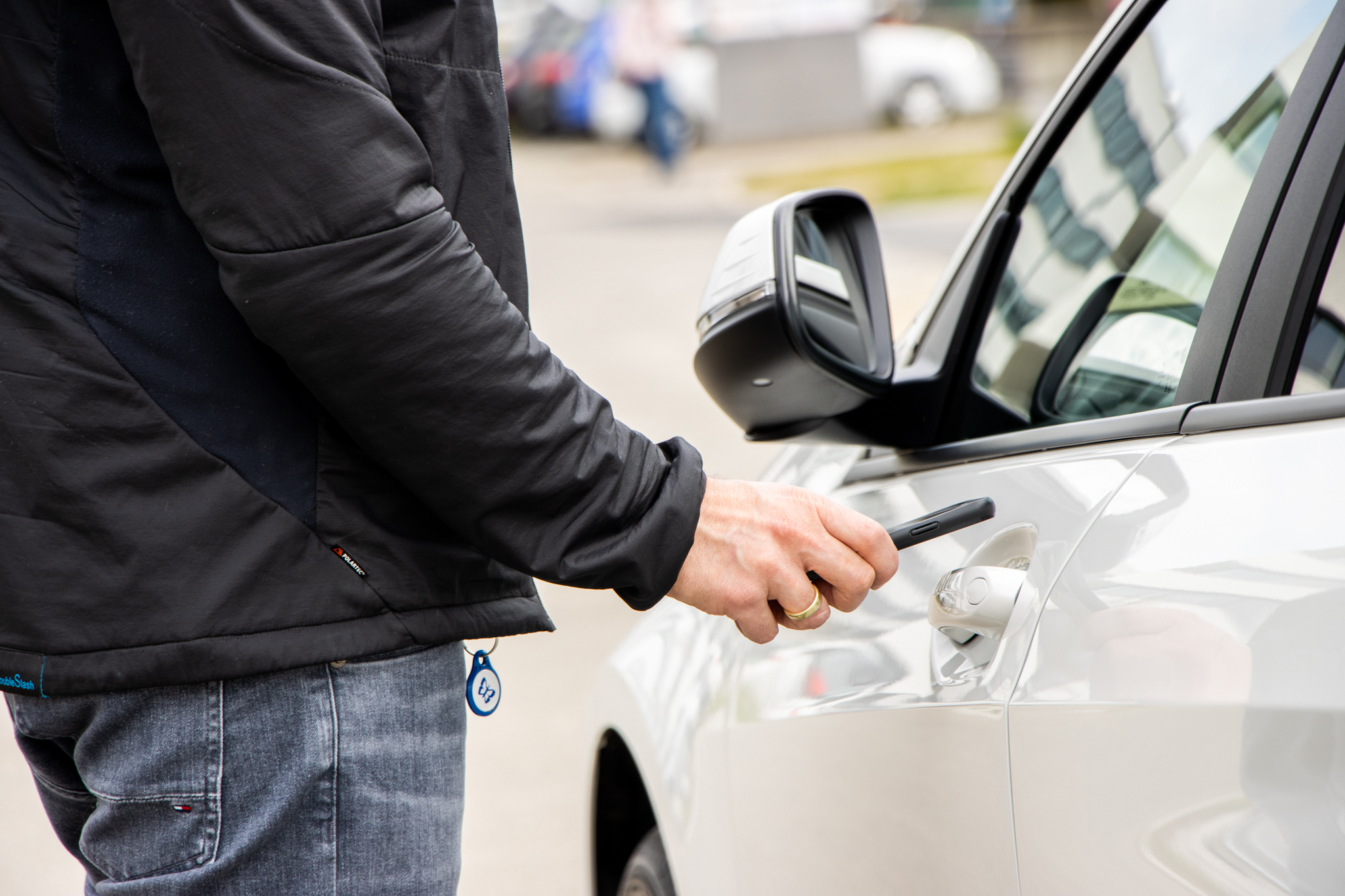 Digitaler Schlüssel. Foto: doubleSlash
Digitaler Schlüssel. Foto: doubleSlash
Software is increasingly determining the utility value of modern cars. This is putting car manufacturers in a tight spot. After all, hardware is losing importance as the basis for value creation. As early as fall 2021, management consultants Oliver Wyman found in a survey that 80 percent of vehicle owners in China and 40 percent in Europe would be willing to switch car brands if they received better digital services. What this means for the industry and its customers is explained by doubleSlash automotive expert Markus Beller in the current eMove360° magazine in german language.
Until a few years ago, manufacturers had a firm grip on the user interface and services in the vehicle. Recently, however, Apple CarPlay, Android Automotive and thus apps like Google Maps or Spotify have been gaining favor. This paves the way for third-party providers to enter the car – they can bypass the carmakers and offer personalized services and contact customers directly.
Infotainment apps and office applications are already playing a growing role in vehicles. In addition, there are apps in the e-commerce sector or services that can be booked in addition and new functionalities such as the digital key.
When it comes to autonomous driving, third-party providers such as the Alphabet subsidiary Waymo, with their extensive expertise in artificial intelligence, big data, simulation, APIs and app stores, are also challenging the car manufacturers.
Demand for in-vehicle infotainment and apps is rising sharply
It’s not surprising that the autonomous software scene is expecting lucrative business cases around the world. Once semi-autonomous driving at Level 3 (highly automated driving) and Level 4 (fully automated driving) becomes a mass market, software-based services are likely to boom. On the one hand, considerably expanded assistance systems with a high software content will then be needed. On the other hand, drivers will be able to use infotainment and other apps to a much greater extent than before. This will push up demand.
This also applies to the market for individualized navigation services, automatic billing systems for tolls, parking fees or e-filling stations and other applications that support (partially) autonomous driving. This will be a huge playground for software companies in the coming years. The vehicle will become the next touchpoint through which providers of all kinds reach their end customers.
In addition to countless gaming and infotainment offerings, there are more and more apps that bring e-commerce into the car. A restaurant can reserve a parking space, send its geodata to the navigation system, and even offer a welcome drink. Or a shopping center offers a special deal, including discounted e-charging and automatic destination navigation.
One thing is clear: the more software applications penetrate the car, the more carmakers will have to fight for their dominance. The fact that many digital services will no longer be linked to the vehicle in the future, but to the person using them, further reinforces this trend.
The used car market will also be given new impetus by apps and add-on services such as higher engine performance, heated seats or more powerful batteries. In the future, when people buy a used car, it will be up to them to decide what they want to add. Motor insurers, for example, can purchase personalized “Driver Packages” with safety-relevant functions for their policyholders and provide them “over-the-air.” If they fulfill their purpose, they reduce the risk of accidents, saving money and hassle. Software makes it possible.
Adding value with the digital key
The digital key offers particularly high potential for added value. It will make renting a vehicle much easier in the future, for example. The digital key not only makes the physical handover of keys obsolete, it also specifies in detail what the driver is and is not allowed to do with the car. Whether it’s a matter of maximum speed and acceleration or the time or region within which the car is unlocked.
The digital key thus serves the growing need to no longer own a car, but to use it only when needed, and is thus an important piece of the puzzle for the “shared mobility” field.
It seems that automakers have no choice but to let third-party providers into the vehicle. Nevertheless, in order not to become too dependent on third-party suppliers, they are currently building up massive software expertise and investing in their own operating system. At the same time, they are integrating an app store of necessity that allows customers access to Apple and Google apps.
This dual strategy can only be advantageous for consumers. After all, it is a well-known fact that competition stimulates business. And here, too, the applications with the greatest benefits will prevail – or those that trigger an emotionally charged hype. In any case, it is the software that opens up new potential for use and value creation.
The author Markus Beller is a Senior IT Consultant in the Connected Mobility division at the software company doubleSlash.